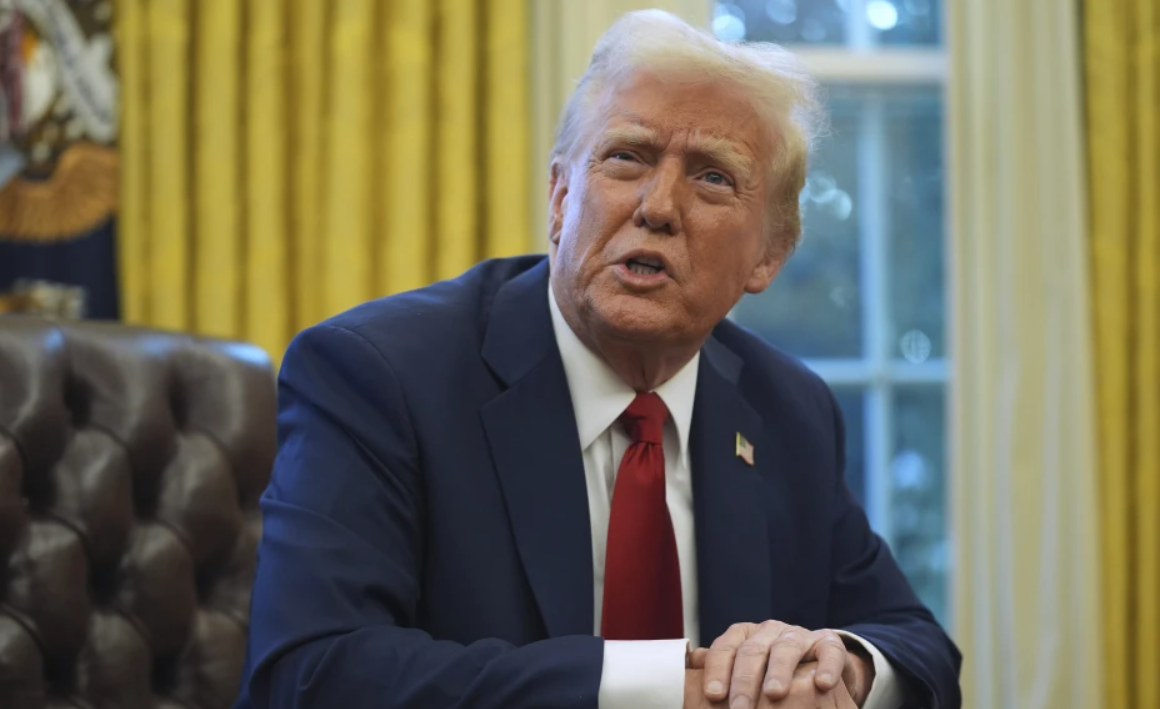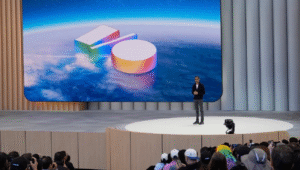President Donald Trump is scheduled to meet with Jensen Huang, the CEO of Nvidia, on Friday. Nvidia, based in Santa Clara, California, is a leading company in designing computer chips that are crucial for artificial intelligence development.
The meeting, which is taking place at the White House, was confirmed by a source who requested anonymity. The source mentioned that the meeting, arranged weeks ago, will provide an opportunity for Huang and Trump to get acquainted and discuss AI policy. Nvidia has not made any comments about the meeting.
In January, Nvidia publicly opposed a move by the Biden administration to expand AI chip restrictions, which were previously aimed at countries like China, to include over 100 additional countries, such as Singapore. It remains unclear whether Trump will maintain or abandon these proposed regulations.
On his first day in office last week, Trump signed an executive order promising to “identify and eliminate loopholes in existing export controls,” hinting that he may continue or intensify Biden’s approach.
The Republican president is counting on artificial intelligence to drive economic growth and attract substantial investments, potentially totaling hundreds of billions of dollars. However, he also views the performance of China’s DeepSeek AI technology as evidence that AI development can be achieved at a lower cost.
During a speech to House Republicans in Miami on Monday, Trump referred to the news about DeepSeek as “positive,” assuming it’s accurate, because it suggests that AI development can deliver the same results at a lower cost. He called it a “wake-up call” for American industries, urging them to focus more on competing effectively.
DeepSeek, which has gained attention in the AI industry, claimed that its recent models were built using Nvidia’s lower-performing H800 chips, which are not restricted in China. The company began to attract more notice last month when it launched a new AI model that it argued was comparable to U.S. models, like OpenAI’s ChatGPT, but more cost-efficient in utilizing Nvidia chips to process large data sets. The chatbot gained further exposure when it became available on Apple and Google app stores earlier this year.
The meeting between Trump and Huang comes as leaders of a special House committee focused on countering China have urged Trump’s national security adviser, Michael Waltz, to consider the national security implications of placing export controls on Nvidia semiconductor chips used by DeepSeek. The committee leaders suggested this review should be part of a broader assessment that Trump initiated on his first day in office, directing the secretaries of State and Commerce to evaluate the U.S. export control system.
Rep. John Moolenaar, the committee chair, and Rep. Raja Krishnamoorthi, the ranking Democrat on the committee, pointed out that DeepSeek has made significant use of an Nvidia chip designed to avoid U.S. export controls. The lawmakers stated that while they support American AI innovation, they also believe in implementing “reasonable safeguards” to protect these innovations from being exploited by China.
In a letter sent on Wednesday, Rep. John Moolenaar and Rep. Raja Krishnamoorthi emphasized the importance of frequently updating export controls to prevent China from exploiting regulatory loopholes to further its AI ambitions. They requested that Michael Waltz, Trump’s national security adviser, focus on strengthening controls for shipments passing through third countries that may be at high risk of diversion.
The lawmakers specifically highlighted Singapore, which accounted for 22% of Nvidia’s revenue in its latest quarterly report. They pointed out that a significant portion of Nvidia’s shipments from Singapore eventually went to users outside of the country. They called for strict licensing requirements for countries like Singapore, urging them to prevent China from using these locations as intermediaries for shipments.
In response, Nvidia issued a statement explaining that the revenue related to Singapore does not indicate that products are being diverted to China. A spokesperson for Nvidia clarified that their public filings report the “bill to” locations, not the “ship to” locations, and many customers in Singapore use the country’s entities for products headed to the U.S. and other Western nations. Nvidia stressed that it expects its partners to follow all applicable laws and would take appropriate action if any violations are identified.














